Explainers
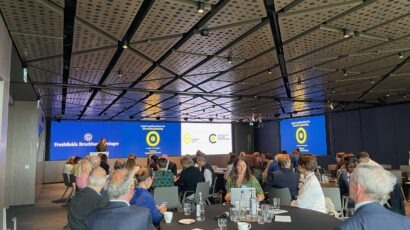
Legal considerations for transition planning: Legacy business and risks
Chapter Zero partnered with Freshfields and the Centre for Climate Engagement in 2023 to explore key climate-related legal questions with non-executive directors from across the UK, especially in the context of transition planning. Below is a summary of the first session, which focused on legacy business and risks.

What is COP?
COP refers to the United Nations’ annual conference on climate change. Its 28th meeting (COP28) is scheduled to begin November 30, 2023, in Dubai, United Arab Emirates. McKinsey explains the background and significance.

Primer on climate change
The Climate Governance Initiative has published the third edition of the Primer on Climate Change: Directors’ Duties and Disclosure Obligations. Produced with the Commonwealth Climate and Law Initiative and covering 31 countries and the EU, it outlines the general climate obligations for board directors.

Net zero targets among world's largest companies double, but credibility gaps undermine progress
Net zero is a corporate norm, with almost two-thirds (65%) of the annual revenue of the world’s largest 2000 companies now covered by a net zero target. Net Zero Tracker looks at the published targets at 12 June 2023.

SEC climate disclosure briefing for Board directors
This briefing, produced by the Climate Governance Initiative, explores and discusses the context of the proposed SEC climate disclosure rule, the current status and likely next steps, and provides key questions for board directors to ask their boards in relation to it.
Normative accounting for intangibles
A briefing from Rethinking Capital and the Centre for Climate Engagement on applying normative accounting for intangibles in net zero transition decision governance and reporting.

Ten things to know about the first ISSB Standards
The IFRS Sustainability Disclosure Standards have been designed to provide a global baseline of sustainability-related disclosures for the capital markets. Here are 10 things you need to know about the ISSB’s new standards.
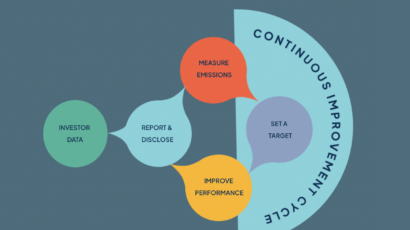
Navigating the climate disclosure landscape
This explainer provides an overview of the evolving and interconnected landscape of climate targets, metrics, reporting standards and frameworks for non-executive directors (NEDs).
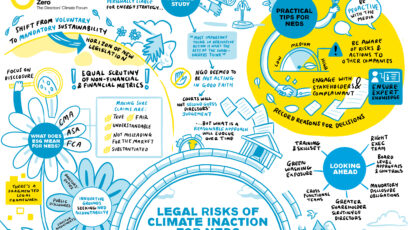
Legal risks of climate inaction
Chapter Zero and White & Case held a session for non-executive directors (NEDs) in May 2023 offering practical advice and insights on the key legal duties and obligations of NEDs in relation to climate change. Here are the key takeaways.
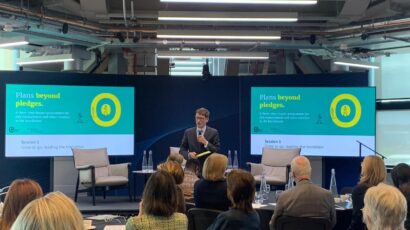
Grow or go: leading the transition
In 2023, Chapter Zero partnered with McKinsey for a three-part event series that explored the impact non-executive directors (NEDs) can have in the boardroom to help their organisations achieve net zero. The first of these sessions, held on Tuesday 6 June, focused on the strategic fundamentals of green growth, and how NEDs can support organisations to move from pledges to plans and help them achieve low-carbon growth. We have summarised below the key takeaways of this event.

Corporate climate policy engagement: A briefing for board directors
Conducting corporate climate policy engagement positively and appropriately is critical to creating the conditions that will enable a company to achieve its net zero transition. This briefing, produced by the Climate Governance Initiative in collaboration with the global think tank InfluenceMap, highlights the key issues that board directors should be aware of.
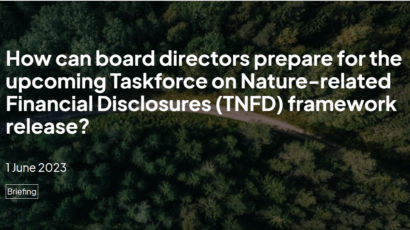
How can board directors prepare for the upcoming TNFD framework release?
As stewards of their organisations, board directors will benefit from understanding the Taskforce on Nature-related Financial Disclosures (TNFD) framework ahead of its official launch in September 2023, and its implications for the organisations they represent. This Climate Governance Initiative briefing provides guidance to board directors on how to prepare for the incoming framework.
